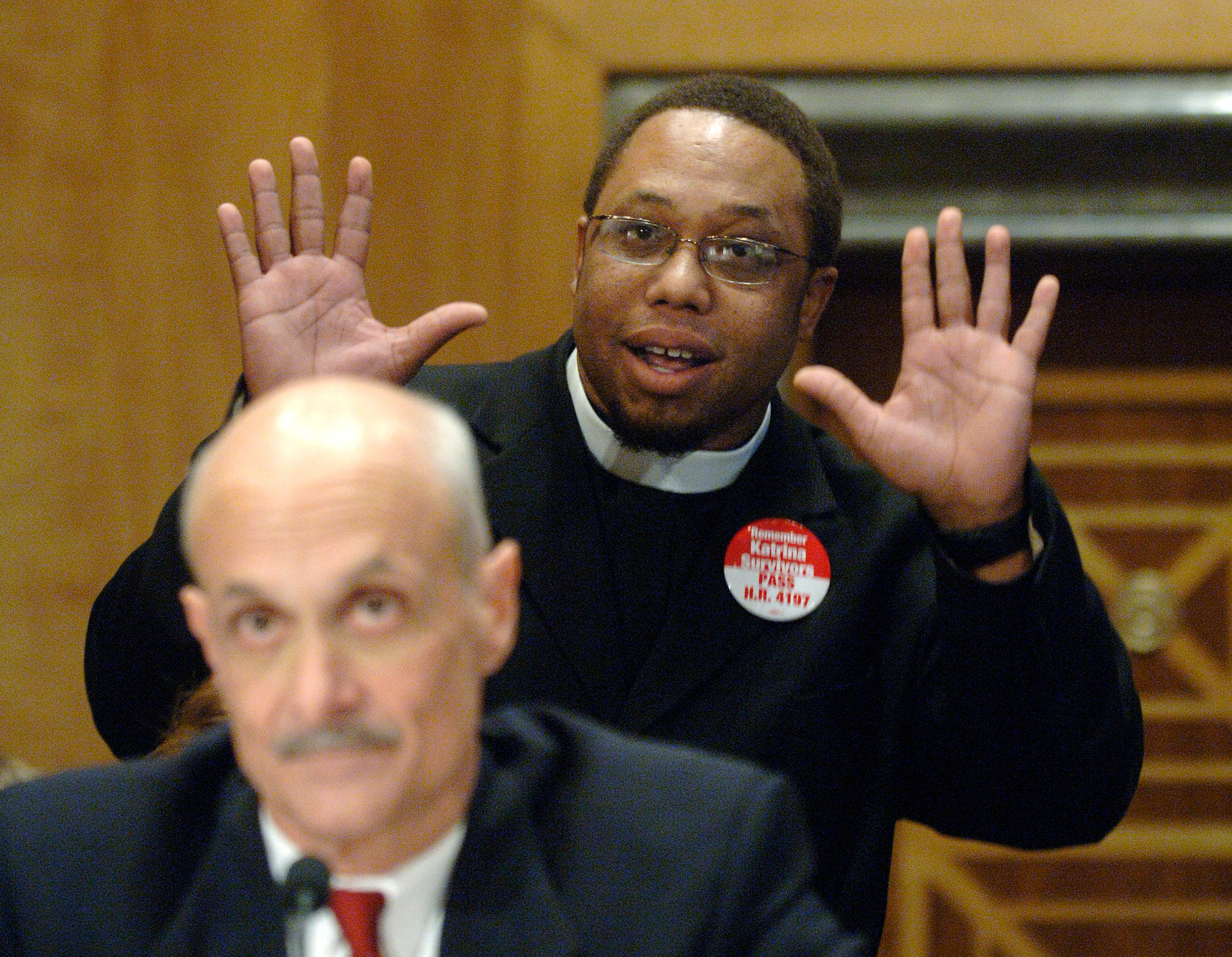Fifteen Years After Katrina, America’s Levees Are Breaking

By Rev. Lennox Yearwood Jr., President & Founder, Hip Hop Caucus
In late August of 2005, as Hurricane Katrina tore through the Gulf Coast, something happened that would have catastrophic impacts on the city of New Orleans: the levees broke. Large swaths of the city were flooded, and Katrina’s legacy was cemented as one of the worst hurricanes to hit the United States. Later investigations would claim that Katrina was just too strong for the levees; that local and state governments were too late in declaring a state of emergency; that more residents should have evacuated to escape the floodwaters.
But the truth soon came out. The levees constructed by the U.S. Army Corps of Engineers were designed and built on shoddy engineering, and funding that would have gone to fixing the levees prior to Katrina was diverted to our wars in Iraq and Afghanistan.
And just like the levees did fifteen years ago this summer the façade of “life, liberty, and the pursuit of happiness” is crumbling. The murders of Black people like George Floyd and Breonna Taylor, the racial wealth divide, and systemic inequities across all our basic civic, social, and economic institutions – all have laid bare the shoddy engineering that our country was founded on, a country in which the exploitation of Black people was, and continues to be, a founding principle.
As we approach the 15th anniversary of Hurricane Katrina it is important to connect the fact that our exploitative and extractive system is inextricably linked to our relationship to the environment, which is also grounded in systemic racism.
What happened in New Orleans fifteen years ago was not an anomaly. Our relentless burning of fossil fuels had warmed the ocean, creating the ideal conditions for stronger, longer storms like Katrina. When negative environmental impacts strike, they don’t do so blind to the existing structural inequalities and injustices in our country. Our country’s history of racist housing policies and redlining had placed Black families in the most vulnerable regions of New Orleans, like the Ninth Ward, which experienced some of Katrina’s worst impacts. The lack of government assistance for the poor in New Orleans left thousands of Black people stranded in the city, unable to evacuate simply because they didn’t have vehicles that could drive long distances — all while wealthy residents fled.
“Environmental racism is woven into the fabric of our country.”
And now, in 2020, the same life-or-death problems at the intersection of race and the climate crisis still persist.
Flint, Michigan, a city with a majority Black population, hasn’t had clean drinking water for six years. Sixty-eight percent of people of color live within 30 miles of a coal-fired power plant, leading to poor air quality that causes everything from asthma to heart disease. Just recently, a study of hidden flood risk in America revealed that areas with the greatest, previously unknown flood risk are those with a high population of Black people and people of color. Yet another study shows that the impacts of the climate crisis, like air pollution and extreme heat, put Black mothers and babies in disproportionate danger of pregnancy complications.
Environmental racism is woven into the fabric of our country.
We need to rethink America from the ground-up, and that starts by addressing the legacy of racism that has brought us to this point.
We need to connect the dots between racial justice and climate justice because our existence is at stake. We cannot breathe. At the Hip Hop Caucus, we’ve created an award-winning platform called Think 100% that tells the stories of climate justice and race through podcasts, film, music, and activism. We need strong partners from the streets to the suites, like Bloomberg Philanthropies, to help us tell these stories and expand people’s understanding of the environment, climate, and race.
“Luckily, we’re already seeing young people engaging at new levels, demanding change in the streets of America.”
At the same time, we need to revitalize our democracy, bringing young people and people of color into the fold to ensure our government is really by the people and for the people. Luckily, we’re already seeing young people engaging at new levels, demanding change in the streets of America.
The levees in New Orleans broke because they were designed poorly. America, too, was designed poorly. It’s time for us to admit this hard truth, so we can start over.
A green, just, and equitable America is possible. To achieve it we need to follow a new blueprint that is informed by the communities who have been most exploited by the original ‘shoddy’ design of our nation.
Join us for the annual commemoration of Hurricane Katrina on August 29th. Learn more here.